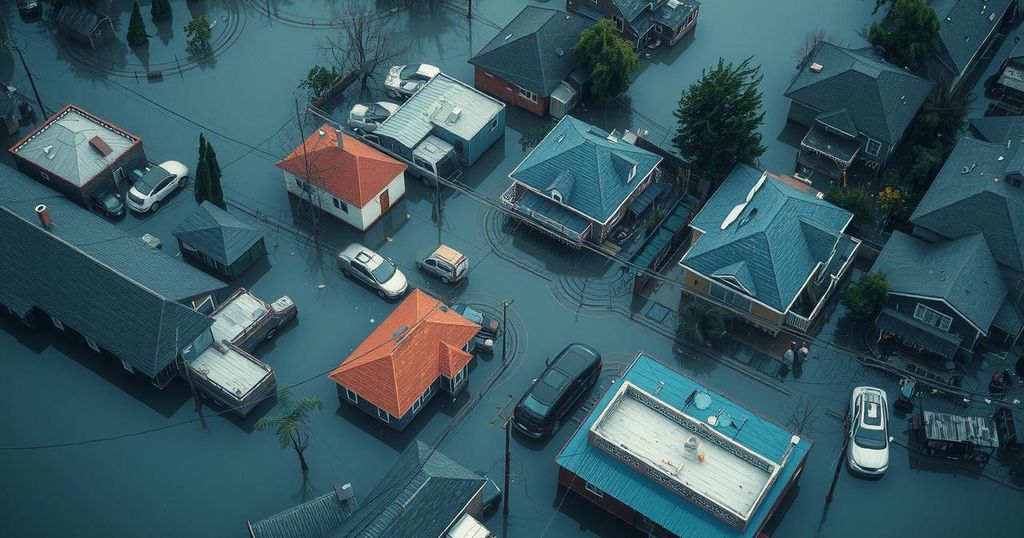Weather
World news
AFRICA, BBC AFRICA, BBCAFRICA. COM, CONGO, CONGO (KINSHASA), CONGO RIVER, DEMOCRATIC REPUBLIC OF CONGO, DISASTER MANAGEMENT, DR CONGO, FLOOD, FLOODING, FLOODS, KINSHASA, KIVU, MACROTRENDS, METTELSAT, MONSOON, NATURAL DISASTERS, SHA, SHABANI LUKOO, SOUTH KIVU
David O'Sullivan
0 Comments
Heavy Rains in Kinshasa Result in Flooding, Claiming 29 Lives
Heavy rains in Kinshasa, DR Congo, have led to severe flooding and landslides, resulting in at least 29 fatalities. The unusually high rainfall, recorded at 90mm, has been linked to climate change and inadequate urban planning. The Interior Ministry is coordinating government response efforts while also extending condolences to families affected by this tragedy.
In a disastrous turn of events, Kinshasa, the capital of the Democratic Republic of Congo, has been severely affected by flooding and landslides. Reports indicate that at least 29 individuals lost their lives as relentless rains swept through the city during what is typically a dry season. The Interior Ministry confirmed this tragic outcome, highlighting the extensive damage throughout the area.
The rare weather pattern brought an astonishing 90mm (or 3.5 inches) of rainfall on a single morning, according to the national meteorological agency, Mettelsat. This amount surpasses the typical rainfall recorded in the actual rainy season that stretches from November to May. Experts attribute these intense rains to climate change, exacerbating problems linked to inadequate urban planning and insufficient drainage systems.
As Kinshasa is situated along the vast Congo River, which ranks among the longest rivers globally, the impact of these floods has been particularly damaging. Many residents inhabit poorly constructed homes or reside in low-lying areas that are prone to flooding. As the population continues to swell—reaching nearly 18 million and an increase of over 4% since 2024—this vulnerability to natural disasters intensifies.
Interior Minister Shabani Lukoo promptly convened a crisis meeting aimed at orchestrating a comprehensive government response to the floods. The ministry has publicly expressed its condolences to the families of the deceased and announced plans to cover the funeral expenses for those who perished in this calamity.
This incident is not isolated; earlier this year, Kinshasa faced severe flooding in April that claimed over 30 lives, and the eastern region of South Kivu witnessed over 100 deaths in flash floods in May. These recurring natural disasters underline the pressing need for improved infrastructure and urban planning to safeguard the citizens of the Democratic Republic of Congo.
The recent heavy rains in Kinshasa, which claimed 29 lives, have highlighted the dire consequences of climate change exacerbated by poor urban planning. With a rapidly growing population at risk, urgent action is needed to enhance the city’s infrastructure and resilience against future disasters. The government’s response is underway, but this event serves as a critical reminder of the challenges faced in urban management amidst changing weather patterns.
Original Source: www.bbc.com




Post Comment